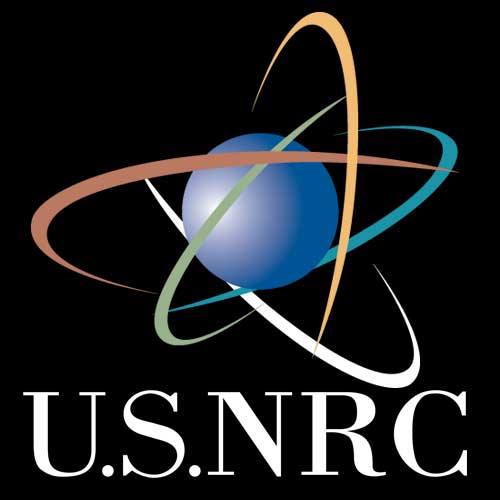
The Nuclear Regulatory Commission’s proposed decommissioning rule “misses the mark” and cedes too much of the agency’s and the public’s power over the decommissioning process to industry, one commissioner said this week.
The proposed rules change, which the commission approved on a 2-1 vote Wednesday after three years of drafts, “tilt[s] the regulation” of nuclear plant decommissioning towards industry and away from NRC and stakeholders, Commissioner Jeff Baran said in a Tweet Wednesday morning.
“We need to change course and produce a balanced rule that respects the interests of a broad range of stakeholders, including states, local communities, and workers,” Baran said.
The next step in the proposed rules change is a 75-day public comment period, which the agency said Wednesday will open “several weeks from now.”
The commission first directed staff to start working on the decommissioning rule in 2014. Since then, its publication has been the subject of some delay. The rule was initially supposed to go live in 2019, but was delayed until this year.
In his written dissent published Wednesday, Baran said that NRC has “adopted two very different versions of the decommissioning process:” one in which NRC is a key decision-maker and stakeholders have a say in the process and another where industry holds the power and stakeholder input is reduced.
The latter approach is “embodied by the current regulation” and is furthered by this new rule, Baran said.
Baran also took issue in his dissent with how the proposed rule approached existing regulations governing plant operators’ post-shutdown decommissioning activities reports (PSDARs). NRC currently does not have to approve PSDARs, a policy Baran called “laissez-faire” and “an abdication of regulatory authority.” The proposed rule doesn’t suggest implementing such approvals.
“Collecting a PSDAR without substantively assessing its content does next to nothing to protect public health and safety,” Baran said, “and taking public comment on the PSDAR is a ‘hollow gesture’ when NRC does not make a determination on the adequacy of the report.”
In a statement Wednesday, NRC said that the newly-approved rule would implement “specific regulatory requirements” for reducing agency-mandated safety and emergency preparedness protocols at nuclear power plants that become unnecessary when the site is being decommissioned.
For example, the updated guidance would allow plant operators to do away with a physical security plan for the reactor core once all fuel has been removed from the reactor, among other decommissioning-specific changes.
Previously, NRC had to issue rules exemptions and license amendments to remove these hurdles, the statement said.
Although the commission approved the proposed reduction in safety regulations, it rejected a proposed rules change from NRC staff that would have allowed plant operators to use their sites’ decommissioning trust funds for spent fuel management. The commission also tossed a staff recommendation to remove a required federal review of licensees’ irradiated fuel management programs.
Across the civilian nuclear power space, industry and stakeholders chimed in this week on the new rule.
“We’re glad to see it’s out,” said Rod McCullum, the Nuclear Energy Institute’s (NEI) senior director of used fuel and decommissioning. Speaking to RadWaste Monitor Wednesday at the Monitor’s annual Decommissioning Strategy Forum, he declined to comment any further on the rulemaking but said NEI was planning to review NRC’s decision.
Asked about Baran’s dissent, McCullum told RadWaste Monitor that “it’s not surprising,” but refused to comment further.
Steven Nesbit, president of the American Nuclear Society (ANS), said in an emailed statement Thursday that his organization was “pleased” with NRC’s decision.
“The current regulatory process for decommissioning is inefficient in that it requires licensees to apply for, and the NRC to grant, exemptions from regulations as the decommissioning process unfolds,” Nesbit said. “It is time to complete this rulemaking process.”
“[W]e fully support the advances the regulations are making to allow decommissioning projects to continue as safely as possible,” said Miles van Noordennen, chief of ANS’s decommissioning and environmental sciences division, in the Thursday statement.
On Capitol Hill, nuclear watchdogs Sens. Ed Markey (D-Mass.) and Liz Warren (D-Mass.) forcefully denounced the proposed decommissioning rule.
“We are deeply disappointed that the Nuclear Regulatory Commission failed to capitalize on this important opportunity to strengthen the decommissioning process and prioritize community safety over industry savings,” Markey and Warren said in a statement Thursday. “This is unacceptable, and we urge the NRC to strengthen this decommissioning rule before finalization in order to better prioritize safety and security,” they said.
Markey has been a vocal opponent of the proposed rules change, penning a letter to NRC in June and calling the move “a step backward.”
Kevin Kamps, chair of anti-nuclear group Beyond Nuclear, said via email Thursday that the decommissioning rule “imperils the public.”
“There are ways that even permanently shutdown reactor sites can still unleash a widespread catastrophe, such as a fire in an uncontained storage pool for highly radioactive irradiated nuclear fuel,” Kamps said. “[D]ecommissioning firms like Holtec have already caused near-miss incidents, as at Oyster Creek in New Jersey, where its employee was doused with radioactive water during fuel transfer.”
The incident Kamps was referring to took place in May at the Forked River, N.J. decommissioning site. NRC issued a violation to Holtec but said at the time that the incident was of low safety significance.